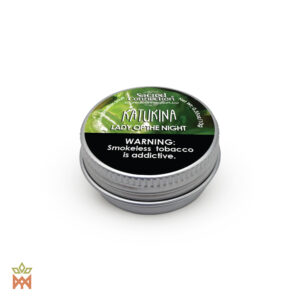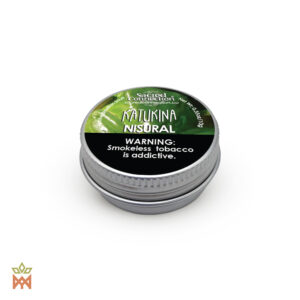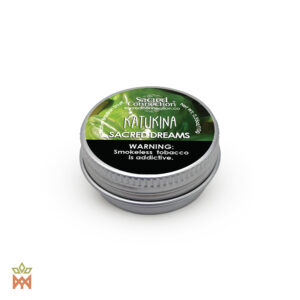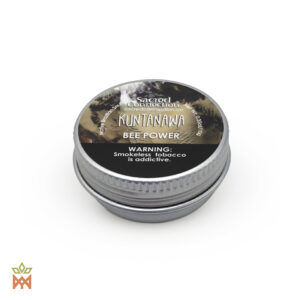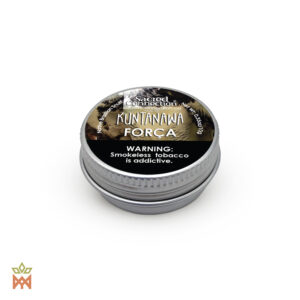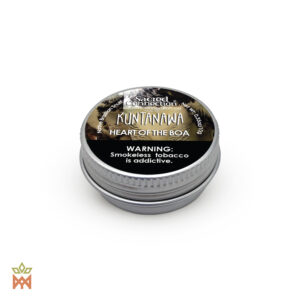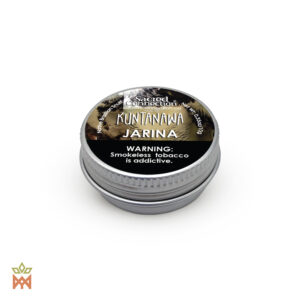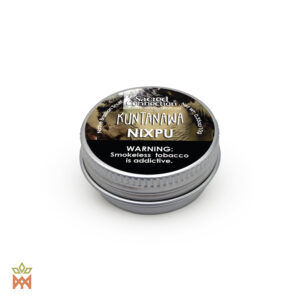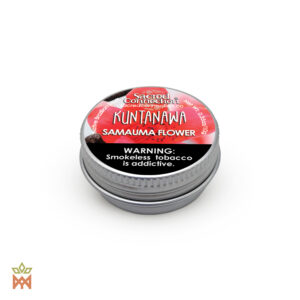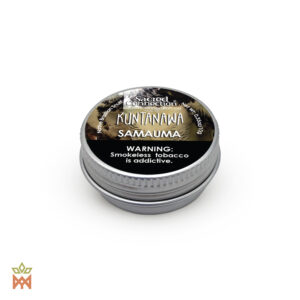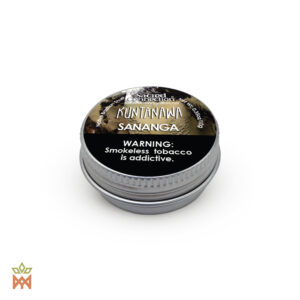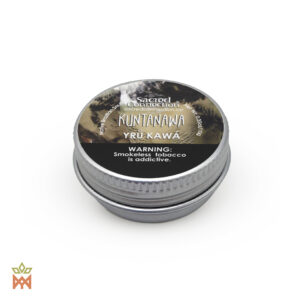Why Buy Rapéh at Maya?
What sets Maya Herbs apart from other platforms is our deep-rooted commitment to working directly with indigenous tribes. Our partners within these communities are individuals dedicated to the revival and preservation of their tribal identity, culture, and spirituality. By sourcing directly through our Brazilian office, we ensure that your purchase contributes meaningfully to building capacity within these communities, and we have complete transparency over where your money goes and how it supports the tribes. Our close relationships with the tribes allow us to maintain a consistent, high-quality product, guaranteeing that each Rapéh you buy from us is authentic and sustainably produced. With Maya, you are not just buying Rapéh, you are supporting a cultural legacy.
What is Rapé?
Rapé, also known as Hapé, is a sacred shamanic snuff deeply rooted in the indigenous traditions of the Brazilian Amazon. This medicinal herb, primarily made with finely powdered tobacco and special ashes, holds significant cultural and spiritual significance among various Amazonian tribes. In this comprehensive exploration, we delve into the rich history, diverse cultural practices, and profound use of Rapé within indigenous communities.
https://youtu.be/2r87ZWivxjY
Origins and Meaning
The term "Rapé" originates from the French word meaning "finely grated," reflecting its preparation method, reminiscent of the snuff used in European cultures. However, within the Amazonian context, Rapé carries a deeper significance, serving as a conduit for spiritual connection, healing, and ceremonial ritual. Each indigenous tribe has its own name for their shamanic snuff, such as Rumã, Dawê Rupusuti, Dume deske, Romo poto, and others, reflecting the diversity of cultural practices and beliefs surrounding Rapé.
Traditional Use and Administration
Rapé is typically administered by a shaman or experienced practitioner using a special pipe called a tepi. Small quantities of the powdered mixture are blown into the nostrils of the recipient, inducing a powerful and immediate effect. The administration process varies among tribes, with different techniques and rituals employed, such as the Beija Flor blow or the Jiboia blow. Alternatively, individuals can self-administer Rapé using a kuripe, a V-shaped pipe, although this may lack the energetic healing and guidance imparted by a shaman.
How to Use Rapé
Rapé is a traditional Amazonian snuff used by indigenous tribes for spiritual cleansing and meditation. To use Rapé effectively, it's important to approach it with respect and intention. Begin by finding a quiet, comfortable space where you can sit peacefully. Traditionally, Rapé is administered with a Tepi (for another person) or a Kuripe (for self-application). Place a small amount of Rapéh into the applicator. If using a Kuripe, gently insert the spout into one nostril, close the other with your finger, and sharply blow into the applicator to propel the Rapéh into your nostril. Breathe deeply and allow the effects to settle. It's common to experience intense sensations and a heightened state of awareness, which can facilitate a profound connection with the self and the environment. Always use Rapéh in moderation and with awareness of its potent effects.
Benefits of Rapéh: A Balance of Science and Tradition
Rapéh, a traditional tobacco-based snuff used by indigenous tribes, offers both scientifically recognized benefits and spiritual value. It is essential to remember that, as a tobacco product, Rapéh contains nicotine, and its use must be approached with care and responsibility.
From a scientific perspective, nicotine—the primary active compound in tobacco—has been shown to enhance focus, concentration, and mental clarity. Studies indicate that nicotine stimulates nicotinic acetylcholine receptors in the brain, which play a key role in cognitive function. This activation leads to improved attention and working memory, explaining why nicotine is often linked to better cognitive performance in controlled settings. Furthermore, research suggests that nicotine may have neuroprotective properties and could potentially benefit individuals with neurodegenerative conditions like Parkinson's or Alzheimer's disease when used in isolated, non-combustible forms.
In parallel with these scientific insights, the indigenous tribes using Rapéh emphasize its role in spiritual practices. They regard Rapéh as a tool for opening the heart, fostering emotional balance, and enhancing connection with ancestral spirits. Many tribes describe Rapéh as a medicine that aligns the mind and body, creating space for inner clarity and spiritual insight. It is often used before bathing rituals to "heat the body," grounding individuals and preparing them for purification. This practice embodies a holistic approach to well-being, blending physical benefits with emotional and spiritual renewal.
While scientific research highlights nicotine’s potential to enhance cognitive function, the tribes' reverence for Rapéh goes beyond these findings, encompassing spiritual opening, emotional healing, and ancestral communication. Users must exercise caution and respect for the substance to maintain balance between the benefits and risks of tobacco use.
Cultural Significance
Within indigenous communities, Rapé holds multifaceted roles and purposes. It is revered for its transformative power, used to enhance the effects of other plant medicines, and even employed recreationally as a stimulant for physical labor. Furthermore, Rapé is believed to possess medicinal properties, acting as a purgative to cleanse toxins from the body and boost natural immunity. Its ability to generate heat in the body makes it particularly useful for warding off rain or impending flu symptoms.
Spiritual and Ceremonial Practices
Rapé is deeply intertwined with spiritual ceremonies and communal gatherings within indigenous communities. Whether it's a casual gathering among friends or a solemn ceremony invoking the forest spirits and ancestors, Rapé serves as a conduit for spiritual connection and communion with the natural world. Its use is approached with reverence, respect, and intention, honoring the ancestral wisdom and traditions passed down through generations.
Where to Buy Rapéh?
If you're looking to purchase high-quality Rapéh, Maya Herbs is your premier destination. We offer an unmatched selection of Rapéh, sourced directly from indigenous tribes in Brazil, ensuring authenticity and the highest quality. Our direct relationship with the tribes not only supports their communities but also guarantees that you receive pure and potent Rapéh made according to centuries-old traditions. Whether you're a long-time user or a new enthusiast, browse our extensive collection at Maya Herbs. Discover the profound ceremonial benefits of our Rapéh, and experience the tradition and craftsmanship that only true tribal connections can provide. Choose Maya Herbs for your Rapéh needs and be assured of a product that respects both tradition and quality.
Rapé History
Rapé (pronounced 'ha-peh') is a traditional herbal snuff that has been used for centuries by indigenous tribes in the Amazon basin, particularly in Brazil and Peru. This finely ground powder is typically made from a variety of medicinal plants, the most common being Nicotiana rustica, a potent type of tobacco. However, its composition can vary widely between tribes and practitioners, often including other plant materials, ashes from sacred trees, or specific herbs believed to enhance its therapeutic properties.
The historical use of Rapé is deeply entwined with the spiritual, medicinal, and social practices of the indigenous communities. It is traditionally administered through a pipe made from bamboo or bone, known as a "Tepi" for others or a "Kuripe" for self-application. The powder is blown into the nostrils, delivering a powerful and immediate effect that encompasses both physical and metaphysical benefits. This practice is often a key component of ceremonial rituals, intended to cleanse the body and mind, connect to the spiritual realm, and realign with one’s inner self.
Snuff Around the World
Snuff or Rapé, a powdered form of tobacco or other substances inhaled through the nostrils, has a long and varied history across the globe, reflecting different cultural, social, and medicinal practices. While snuff is often associated with indigenous rituals in the Americas, its use spans many continents and civilizations, each adapting it to their own traditional contexts.
Europe: Snuff saw a surge in popularity in Europe during the 17th century, following the discovery of tobacco in the Americas and its introduction by the Spanish. It became a fashionable alternative to smoking, especially among the upper classes and royalty across Europe. Notable figures like Queen Charlotte, wife of King George III of England, were known enthusiasts, leading to snuff becoming a status symbol in English society. The use of ornate snuff boxes was common, often made from precious materials and elaborately designed.
Africa: In many African cultures, snuff is used both recreationally and ceremonially. It is often shared during negotiations, rituals, and social gatherings as a gesture of hospitality and goodwill. Among the Zulu and other South African tribes, snuff is traditionally taken as a sign of respect and communal bonding.
Asia: In countries like India and Nepal, snuff use has a historical presence, particularly in the form of Naswar, a type of moist snuff used in the northwest regions of South Asia. It is typically made from fresh tobacco leaves, slaked lime, and indigo, and sometimes includes cardamom, oil, menthol, and water, which are known for their intense stimulating properties.
Americas: In South America, indigenous tribes such as the Yanomami, Huitoto, and Tupi people have used snuff made from various psychoactive plants, including tobacco, for spiritual and medicinal purposes. In the Brazilian state Acre the Pano tribes such as the Yawanawa, Huni Kuin and others have traditionally used tobacco snuffs. The snuff is often part of shamanistic rituals aimed at healing, divination, and connecting with spiritual realms. These traditions highlight the deep spiritual significance of snuff in indigenous cosmology.
The use of snuff around the world demonstrates its versatility and the variety of cultural meanings attached to its consumption. While its popularity has waned with the rise of cigarettes and other forms of tobacco use in modern times, snuff still holds a significant place in many cultures as a link to historical traditions and social practices.
Rapé in the tribes
Rapé, the sacred herbal snuff, plays a vital role in the cultural and spiritual practices of numerous indigenous tribes in the Brazilian state of Acre. Each tribe has its own unique traditions, recipes, and ceremonial uses for Rapé, reflecting their deep connection with the natural environment and ancestral knowledge. Here are some prominent tribes from Acre known for their Rapé use:
- Yawanawá: One of the most well-known tribes in Acre for using Rapé, the Yawanawá utilize this snuff for healing and ceremonial purposes. They often administer Rapé during spiritual rituals to cleanse the body and mind, facilitate profound spiritual insights, and connect with the spiritual world. The Yawanawá hold significant knowledge about various plants and their uses in traditional medicine, including Rapé.
- Kaxinawá (Huni Kuin): The Kaxinawá, or Huni Kuin, which means "True People," also use Rapé extensively. For them, Rapé serves not only as a medicinal tool but also as a way to reinforce social and cultural bonds within the community. It is used in initiation rites, healing rituals, and as a way of welcoming guests or strengthening the communal spirit.
- Shawãdawa Arara: Known as the "People of the Macaw," the Shawãdawa reside in Acre close to the border withPeru, the Shawãdawa use Rapé in a variety of spiritual and healing contexts. They regard Rapé as a way to clear negative energy, enhance communication with the spirit world, and as a crucial element in their shamanic practices.
- Katukina: The Katukina people use Rapé for spiritual cleansing, to prepare for other ceremonies, and to induce profound introspective experiences. They believe that Rapé helps open the mind to receive messages from the spirits and to increase their understanding of the natural world.
- Shanenawa: The Shanenawa use Rapé in their rituals to create a connection between the physical and spiritual worlds. It is often used by healers to prepare for spiritual work, including singing icaros, or healing songs, which are believed to come from the forest spirits.
- Kuntanawa: The Kuntanawa tribe, whose name means "People of the Coconut," is a small indigenous group from the state of Acre in Brazil. With a deep connection to the Amazon rainforest, the Kuntanawa people have long used Rapé as part of their spiritual and healing traditions. For the Kuntanawa, Rapé is an essential tool for cleansing the mind and body, opening spiritual pathways, and fostering connection with the natural world. In ceremonies, it is often administered by shamans to guide individuals through healing and introspective journeys. The Kuntanawa's Rapé blends are crafted with profound respect for the wisdom of the plants and are considered powerful spiritual allies in their practices.
- Nukini: The Nukini tribe, also located in Acre, Brazil, is known for their rich shamanic traditions and strong knowledge of plant medicine. Rapé plays a central role in their spiritual ceremonies, where it is used for purification, grounding, and connection to ancestral spirits. For the Nukini, Rapé is more than a medicinal tool; it is a sacred substance that helps them communicate with the spiritual world and align their physical and energetic bodies. Their Rapé blends are often made from a wide variety of medicinal plants, reflecting the tribe's deep understanding of the Amazon's natural resources. These blends are considered powerful tools for personal transformation and healing.
- Apurinã: The Apurinã people, residing along the Purus River in the Brazilian Amazon, are deeply connected to their environment, and Rapé is an integral part of their cultural and spiritual life. In Apurinã rituals, Rapé is used to cleanse the body and spirit, and to enhance communication with the spiritual realm. It is also a tool for personal reflection and healing, helping individuals find clarity and balance. The Apurinã shamans play a key role in preparing and administering Rapé, ensuring that the mixture reflects the tribe’s ancient knowledge of the forest. Their unique Rapé blends often incorporate local plants and ashes, making each blend a reflection of their deep connection to the natural world and their spiritual traditions.
These tribes' practices highlight the diversity of Rapé's applications and its importance as a spiritual and medicinal tool in Acre. The knowledge and traditions surrounding Rapé are passed down through generations, ensuring the continuity of these cultural practices and the preservation of indigenous wisdom related to the Amazonian biodiversity.
Buy Rapéh Snuff at Maya
At Maya Herbs, we offer a wide selection of Rapéh snuff sourced directly from various indigenous tribes, ensuring authenticity and sustainability. With no middlemen involved, our collection comes straight from the hands of the tribal communities that craft these sacred blends, maintaining the highest standards of quality. We pride ourselves on providing the finest Rapéh at competitive prices, offering you the best in traditional medicine while supporting the cultural and economic well-being of our indigenous partners.
For our American customers, Sacred Connection is our trusted partner and the best option for sourcing Rapé in the USA. Offering a wide selection of the finest quality blends, Sacred Connection works directly with indigenous tribes to ensure authenticity and cultural integrity in each product. Through this partnership, our American clients can access an exceptional range of Rapé varieties—each crafted with care and intention—while enjoying local shipping and prompt delivery. Discover the depth and quality of traditional Rapé with Sacred Connection’s commitment to excellence.


